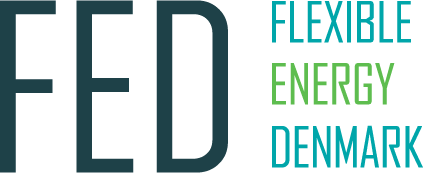Published 12. Nov. 2020
AAU: In the not so distant future, buildings will be energy-smart
Researchers from the Department of Computer Science at Aalborg University contribute to new technology that will turn existing buildings increasingly “energy-smart”. The aim is to reduce energy consumption and utilize flexibility, but also to teach consumers to look at their houses as individual energy systems.

Major parts of society are currently undergoing a comprehensive digitalization. But one place where digitalization has not yet made a large entry is in our houses and buildings, especially those of an earlier date. One consequence of this is that very few consumers perceive their homes as energy systems.
Over the next few years, researchers from the Department of Computer Science at Aalborg University will be contributing to turning existing buildings increasingly “energy-smart”. This will take place in the project domOS, a so-called Innovation Action funded by the EU with a grant of around DKK 30 mill.
In the domOS project, the Danish researchers will be collaborating with companies, utility companies and colleagues from a total of five European countries to develop a joint platform that will ensure that the many different devices and sensors in our houses can be controlled and interact in an intelligent and fine-grained manner.
From the Department of Computer Science, researchers from both Daisy – Center for Data-Intensive Systems and DEIS – Distributed, Embedded and Intelligent Systems participate. One of the participants is Professor Torben Bach Pedersen. He explains that if we are to achieve our ambitious energy goals, technology in buildings needs to be more efficient, consumption needs to be more flexible, and energy needs to be greener.
- The platform needs to accommodate all of this – and at the same time be integrable in existing buildings. The big challenge will be to create a model that fits all devices. This will, to a very large degree be a matter of developing ontology – that is, ensuring that shared, standardized data formats are used for the exchange of information about and between buildings. At the same time, we also need safe methods for publishing data without compromising people’s privacy.

SYSTEM TO BE TESTED BY CITIZENS
In the course of the project, the researchers will also design, implement and evaluate a series of services, including the FlexOffer concept, developed at AAU, which models, combines and optimizes energy demand and flexibility in specific processes and devices. This will be done through a series of demonstration experiments across the five countries. Associate Professor Arne Skou, who also participates in the project, explains:
- Every building is different, and equipment suppliers all have their preferred makes and models. In addition to the challenge of enabling the system to accommodate all these differences, we also need to take into account that the buildings are located in different climates. There are major differences between Switzerland and Denmark.
One such experiment will take place in Aalborg, Denmark, where around 2500 residents in the apartment block Kildeparken are to test a technology that enables intelligent control of district heating. The hope is that this will reduce energy consumption and heating costs, as well as lessen the peak load on the distribution grid. In another Danish town, Skive, a different experiment will take place in which the residents of a number of single-family houses will be testing fully automatic heating systems.
Last but not least, the researchers hope that the project will result in a new labelling scheme, a so-called Smart Readiness Indicator (SRI), to be used for indicating how “energy-smart” a building is.
- A smart building is nice to live in, and it is a building that you as a resident can communicate with, and where you understand what is going on. In addition to these technologies getting seamlessly integrated in the buildings, the residents also need a deeper understanding of how the building and the energy system as a whole function. We hope this project will bring us quite a bit closer to that, Torben Bach Pedersen says.
Contact:
Press representative Nina Hermansen
Institut for Datalogi Aalborg Universitet
Mail: ninah@cs.aau.dk
Telefon: 2090 1829
Professor Torben Bach Pedersen
Center for Data-intensive Systemer (Daisy)
Telefon: 6062 1608
Mail: tbp@cs.aau.dk
Lektor Christian Thomsen
Center for Data-intensive Systemer (Daisy)
Telefon: 9940 8919
Mail: chr@cs.aau.dk
Lektor Arne Skou
DEIS - Distribuerede, Indlejrede og Intelligente systemer
Telefon: 9940 8851
Mail: ask@cs.aau.dk
Lektor Brian Nielsen
DEIS - Distribuerede, Indlejrede og Intelligente systemer
Telefon: 9940 8883
Mail: bnielsen@cs.aau.dk
About the project:
The project Operating System for Smart Services in Buildings (domOS) has a total budget of around DKK 37 mill., of which around DKK 30 mill. are funded by the EU’s Horizon 2020 framework programme.
From the Department of Computer Science, researchers from Center for Data-Intensive Systems (Daisy) and DEIS – Distributed, Embedded and Intelligent Systems participate. Other Danish participants are Neogrid Technologies, Suntherm and Aalborg Forsyning. The project is headed by HES-SO University of Applied Sciences and Arts Western Switzerland.
